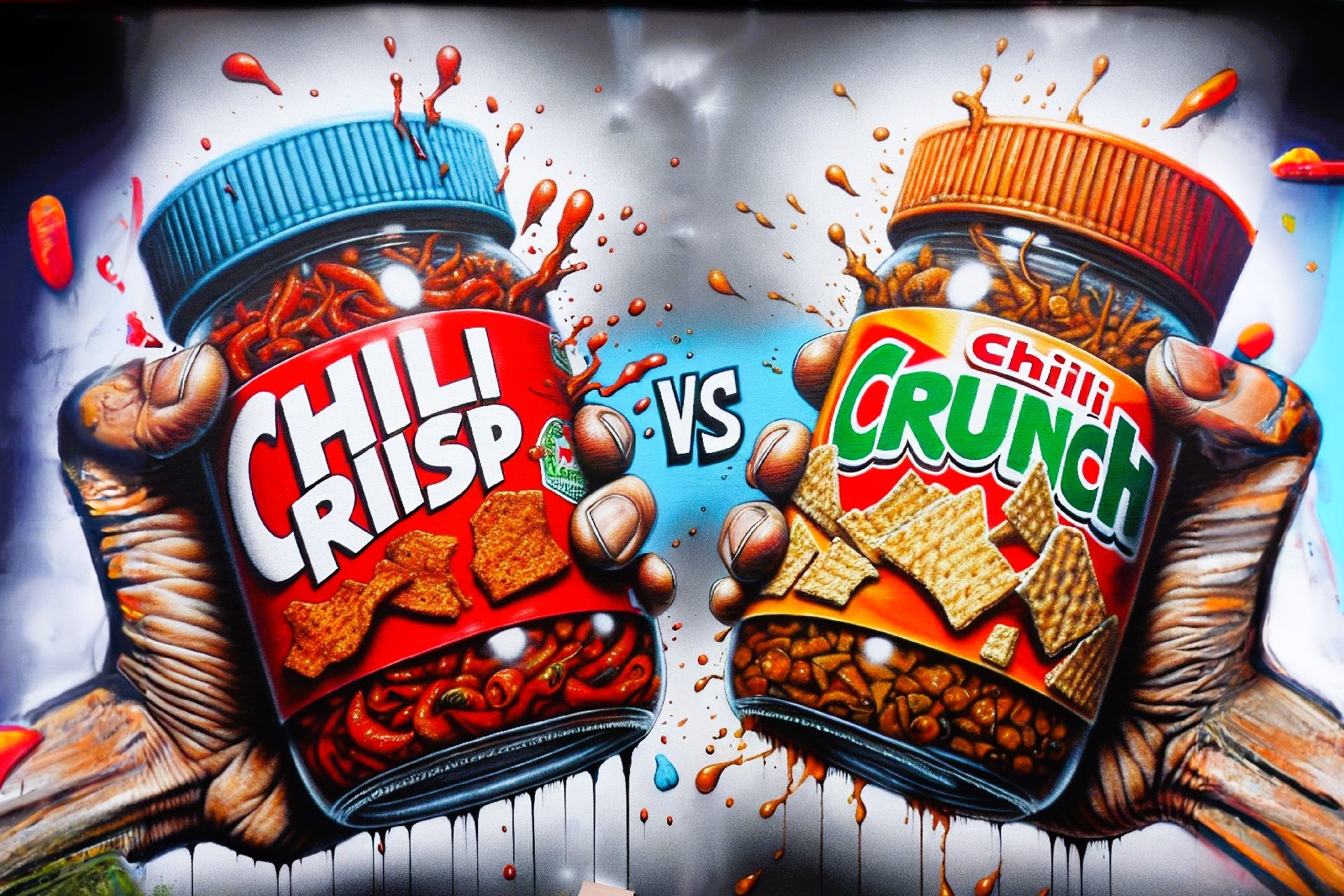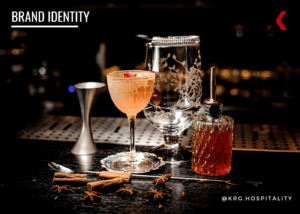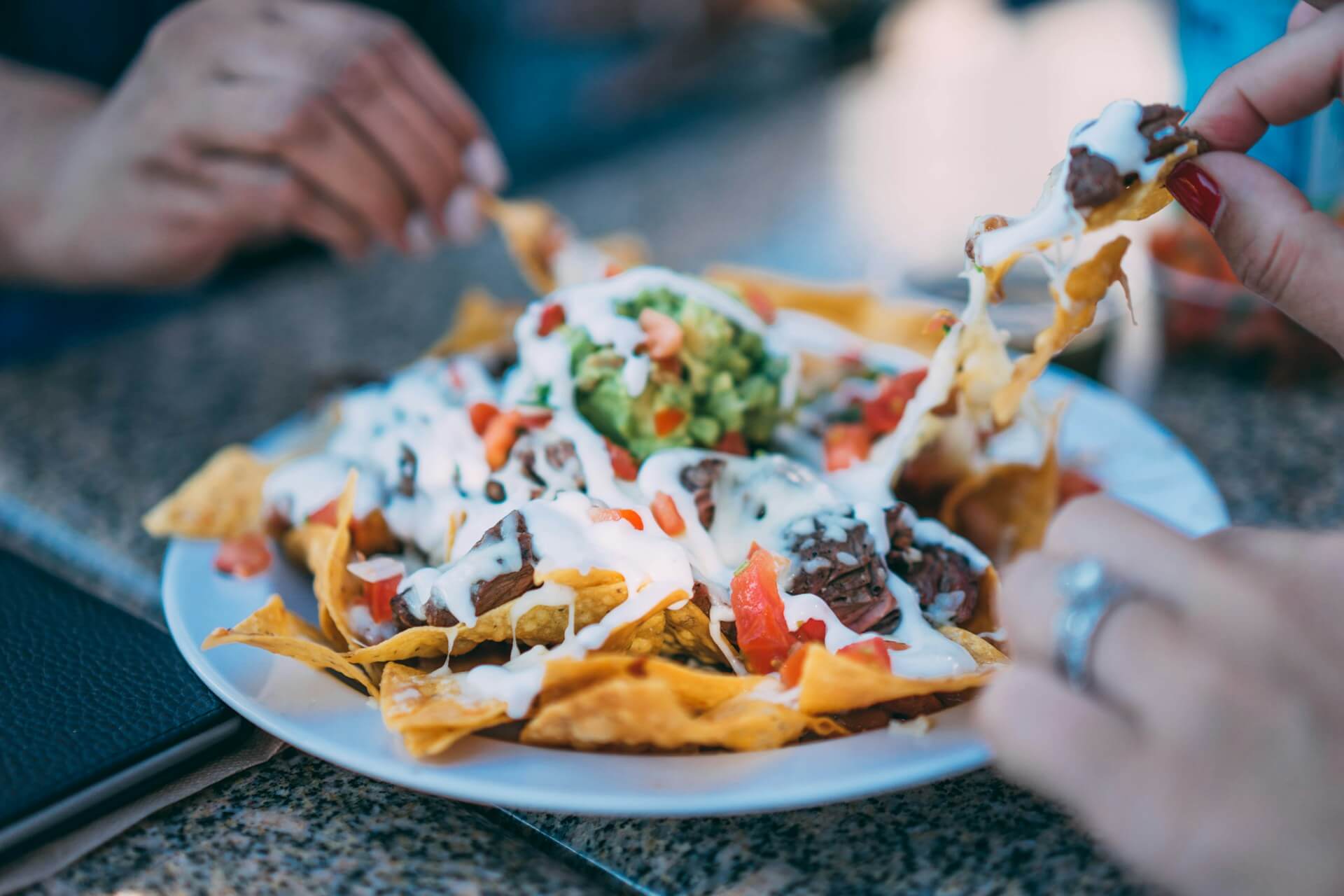What’s Going on with Chili Crisp?
by David Klemt

I’m not convinced that AI platforms know much about chili crisp or human hands.
UPDATE (April 15, 2024): David Chang has reportedly stated that Momofuku will no longer enforce the “Chile Crunch” trademark. He made the statement on his The Dave Chang Show podcast.
A legal battle over a chili crisp trademark is spilling into the public arena, and people are taking sides and making their feelings known on social media.
More specifically, Momofuku appears to be defending its “Chile Crunch” and “Chili Crunch” trademarks vigorously. To say some people aren’t exactly fans of this legal news is an understatement.
To provide context for the unfamiliar, Momofuku is a restaurant group first established in 2004 by David Chang. By 2019, the group had expanded, opening 20 venues. In 2020, Momofuku Goods began selling some of its culinary products in the retail space.
Among the products carrying the Momofuku name and peach logo is Chili Crunch. This is the brand’s version of chili crisp, a condiment consisting of oil, fried chili pepper, and other elements, such as garlic and onion (and other peppers).
From what I can find, it’s widely accepted that chili crisp originated in China, and has been around for centuries. How many centuries? I have no idea.
However, I can say with certainty that Momofuku has owned the “chile crunch” trademark since 2023. And I know that Momofuku acquired the rights to that trademark from Chile Colonial, LLC. That acquisition was part of a settlement.
Interestingly, Chile Colonial took action against Momofuku last year for trademark infringement for using the product name Chile Crunch. The former had been selling its Chile Crunch since 2008, and registered the trademark in 2015.
Now, it’s Momofuku, who apparently licenses the trademark to others, taking action to defend the trademark. Toward the end of last month, the company applied to trademark “chili crunch.”
Cease and Desist
As several outlets have reported, a number of chili crisp producers have received cease-and-desist letters.
Eater has reported that one producer, Homiah, received such a letter after they renamed their Crispy Sambal product to Sambal Chili Crunch.
The letter reads, in part, “Momofuku trusts that Homiah did not adopt the CHILI CRUNCH mark in bad faith or with an intent to create confusion. But because trademark law requires brand owners to police use of their trademarks—and because Momofuku is concerned that consumers may actually be confused here—we write to request Homiah’s cooperation.”
One element of the requested cooperation is that Homiah stop using the name Sambal Chili Crunch within 90 days.
It seems that it hasn’t taken long for these legal requests to find their way to the public at large. And, yes, sides have been taken.
Sifting through the comments on Eater’s Instagram post about this situation paints a vivid, albeit not entirely unexpected, picture.
View this post on Instagram
“This is a great way to ensure that I’ll never buy Chang’s version,” reads one comment.
“If no one owns RANCH, no one should own this,” says another Instagram user.
“No, this is absurd. Heinz didn’t trademark ketchup, they trademarked Heinz, this is so ridiculous. He can trademark momofuko and the peach logo. But this is so stupid,” is a comment with nearly 400 likes.
Finally, there’s this simple statement: “You can’t trademark culture.”
Los Angeles Times columnist Jenn Harris would agree with that last comment. Addressing Momofuku’s legal actions, she writes, “I reject the notion that someone could exclusively own something so ingrained in my culture, a food I consider an intrinsic part of my identity.” You can, and should, read her column here.
Must Defend
There’s more at play here when it comes to trademarks.
Speaking in incredibly general terms—and without providing any legal advice—once a trademark has been granted, the owner must defend it. Failing to do so, which includes filing variations and taking action against others, can result in the loss of the rights associated with the trademark.
So, on one finger on one hand, Momofuku must defend “chile crunch” and, if granted, “chili crunch,” if the company wants to retain their trademark rights. On another, does the blame lie with the United States Patent and Trademark Office (USPTO) for granting the trademark in the first place?
Going deeper, should Momofuku have negotiated different settlement terms that wouldn’t preclude others from calling their chili crisp products Chile Crunch? I’m not remotely qualified to speak on the legal dispute between Chile Colonial, LLC, and Momofuku, so I can’t even begin to form an opinion. If the settlement was “pricey,” I understand Momofuku being sensitive about other products potentially cutting into their sales.
Per reporting, Susan Hojel, the owner of Chile Colonial, has said she was “going broke” defending the Chile Crunch trademark. Many of the cease-and-desist letters were going to large companies. In that sense, Hojel saw herself in the role of David, going after corporate Goliaths.
Now, however, the public views David Chang and Momofuku as Goliath, attempting to crush noble Davids. Therefore, I have to wonder if the real issue is public perception, not legality. After all, I’ve seen the label “trademark bully” affixed not to just Momofuku but Chang as well.
Worth It?
I don’t know what the answer is for the questions swirling around this legal fight. All I can do is wonder if defending this trademark is worth the backlash.
At the moment, we’re seeing comments expressing disappointment and disdain. What happens if those comments manifest in damaged brand perception?
Put another way, there’s defending your brand…and there’s defending your brand.
Image: Shutterstock. Disclaimer: This image was generated by an Artificial Intelligence (AI) system.


